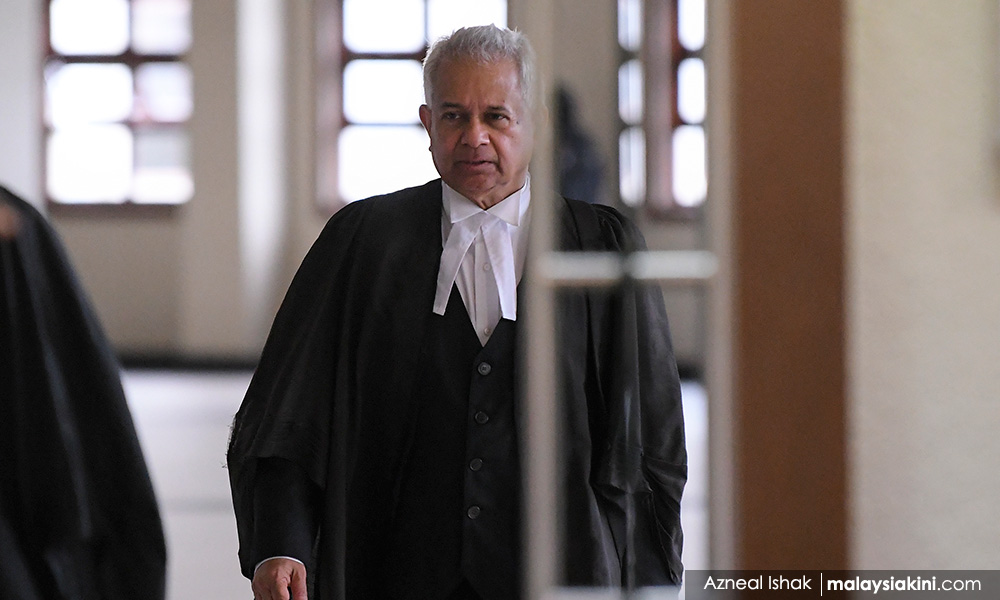Prominent legal eagle Gopal Sri Ram has dismissed the argument that former attorney-general Tommy Thomas is bound by the lawyer-client privilege with regard to the disclosures in his memoir.
The former Federal Court judge pointed out that the revelations do not come within the ambit of Section 126 of the Evidence Act 1950.
Section 126 states that no lawyer shall at any time be permitted, unless with his client's consent, disclose communication made to him when performing his functions as the client's lawyer, among others.
However, the section also states this does not apply in situations where such communication between the lawyer and client was in furtherance of any illegal purpose, or where the lawyer observed any crime or fraud committed in the course of him being hired.
"Legal professional privilege is governed by Section 126 of the Evidence Act 1950. Looking at the matters published by Thomas, they do not appear to come within the scope of Section 126.
"The English cases support disclosure, save in those cases protected by public interest immunity.
"In any event, most of what Thomas said is a comment on matters of public knowledge. So I do not see anything wrong," Sri Ram, who is now a practising lawyer, told Malaysiakini.

He was responding to senior lawyer Mohamed Haniff Khatri Abdulla regarding Thomas' disclosure in his memoir titled My Story: Justice in the Wilderness.
Similarly, another legal veteran, who requested anonymity, said Thomas had represented the country in his capacity as the former attorney-general.
"He was not representing (former prime minister) Dr Mahathir (Mohamad) as an individual. So the lawyer-client privilege argument does not hold water," he told Malaysiakini.
Haniff said the disclosures should not have been made as Thomas should remain bound to the basic concept of "lawyer-client interest", which dictates the non-disclosure of any advice given while in service.
Among the disclosures made in the book was a claim that Mahathir had intervened and insisted on being appointed interim prime minister when the king proposed then PKR president Dr Wan Azizah Wan Ismail for the position.
Based on excerpts from the book, Haniff, who represented Mahathir in several legal challenges in the past, disputed Thomas' views that the former prime minister had voluntarily resigned from his position in February last year and subsequently triggered the political turmoil leading to Perikatan Nasional (PN) taking over Putrajaya.
Haniff also claimed that Thomas' views on Mahathir appeared to be at odds with his reported opinion, on the same issue last year, that there was no time limit for an interim prime minister to hold office.
The 573-page memoir is sold by independent publisher Gerak Budaya. - Mkini




No comments:
Post a Comment
Note: Only a member of this blog may post a comment.